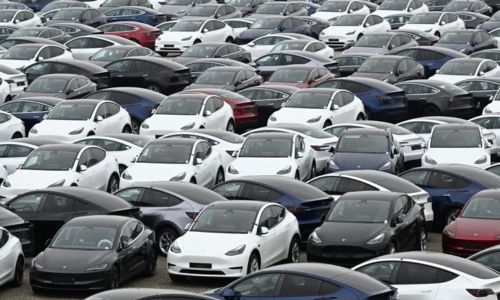Bahrain is currently facing a major traffic crisis due to the increasing number of vehicles on the roads, resulting in significant delays for commuters and impacting productivity and quality of life. One proposed solution that is being explored is implementing a policy that would limit each family to owning just one car. This measure aims to reduce the volume of vehicles on the roads, leading to benefits such as lower fuel consumption, decreased emissions, and less strain on urban planning.
Residents like Abel believe that fewer cars on the road could have positive effects on the environment and public infrastructure, encouraging more sustainable transportation options like public transit and cycling. However, critics of the one-car-per-family policy argue that it could pose challenges for households with multiple working members or elderly dependents. They fear that this measure may disproportionately impact low-income families who rely on their vehicles for their livelihoods.
The ongoing debate surrounding the potential implementation of a restrictive car ownership policy reflects the complex balance between promoting sustainability and meeting the practical needs of the population. While some support the idea as a means to alleviate traffic congestion and reduce emissions, others are concerned about its potential negative implications for certain segments of society. Ultimately, finding a solution to Bahrain’s traffic crisis will require careful consideration of all perspectives and the development of comprehensive strategies that address both environmental concerns and social realities.
In light of the growing traffic congestion and its implications on daily life in Bahrain, it is essential for policymakers to explore a range of potential solutions that strike a balance between sustainability and social equity. While a one-car-per-family policy may offer some benefits in terms of reducing the number of vehicles on the roads, it is crucial to consider the diverse needs and circumstances of Bahraini households. By engaging in a transparent and inclusive dialogue with stakeholders, authorities can work towards implementing measures that effectively address the traffic crisis while safeguarding the well-being of all residents.
Moving forward, it will be important for Bahrain to invest in alternative transportation options and infrastructure improvements that encourage sustainable mobility and reduce the reliance on individual vehicles. By prioritizing public transit, cycling lanes, and pedestrian-friendly spaces, the country can create a more livable and eco-friendly environment for its residents. Ultimately, the success of any traffic management strategy will depend on the willingness of policymakers to collaborate with the community, listen to their concerns, and work towards a shared vision of a more efficient and sustainable transportation system in Bahrain.


























